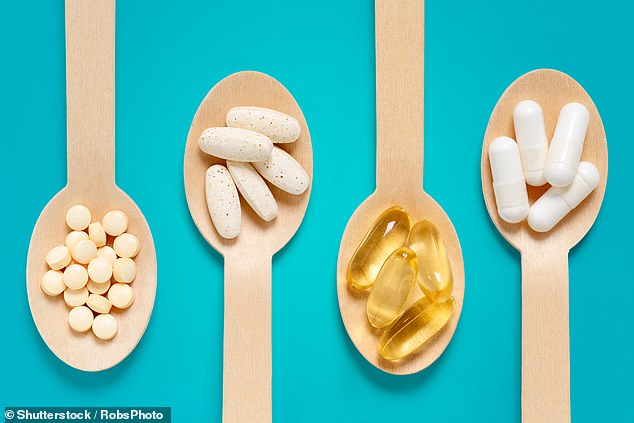Americans love supplements. According to a recent survey by the Council for Responsible Nutrition, about three-quarters of us say we consume them.
But vitamins are still medicines and can cause side effects such as skin diseases if taken in large quantities, a top dermatologist has warned.
Dr. Charles Puzaa New York-based board-certified dermatologist, took to TikTok to highlight one little-known risk of two of the most popular supplements.
“High doses of vitamins B6 and B12 have been linked to causing acne and worsening acne,” he wrote in the text insert of the video, which has received 41,000 views to date.
Next to his comment was an image of a bottle of capsules and a pack of multivitamins, which often contain high doses of vitamins.
Both B vitamins are important for healthy red blood cells and energy levels. B6 is especially important for helping the body utilize and store energy from the proteins and carbohydrates in food.
Vitamins B12 and B6 are both found in a variety of foods. Vitamin B12 is found in meat, fish, milk, and eggs, and vitamin B6 is found in foods such as pork, chicken, some fish, and oats.
According to government guidance, adults should consume approximately 2.4 micrograms of vitamin B12 and 1.3 to 1.7 milligrams of vitamin B6 per day, depending on gender and age.
However, some supplements contain much more than this. For example, Nature Made’s Super B Energy Complex, a nutritional supplement for brain cell function support, contains 6 micrograms of B12.
Research shows that 75 percent of Americans say they take supplements, and about half say they take them regularly.
Additionally, B6 tablets from the same brand contain 100mg of B6 per tablet, which is 58 times the recommended intake.
Other side effects tend to occur only with large doses of vitamin B12 (such as 500 or 1000 or more), but Dr. Puza says acne can be a side effect of drugstore supplements.
Some experts say that taking about 50 mg of vitamin B6 may increase your risk of nausea, vomiting, diarrhea, and neurological disorders.
Other experts explain that this compound can enter the bloodstream and somehow interact with bacteria living on the skin, causing breakouts.
A 2015 study in acne patients showed that vitamin B12 injections can change the DNA of common acne bacteria present in pores.
Other studies have shown that vitamin B12 helps the microorganism behind acne, called Propionobacterium acnes, survive by helping it breathe.
Looking back on 2020, Researchers published in the journal Dermatology Online concluded that high doses of vitamin B6 can cause skin lesions.
However, the underlying biological processes that may be driving this change were inconclusive.
